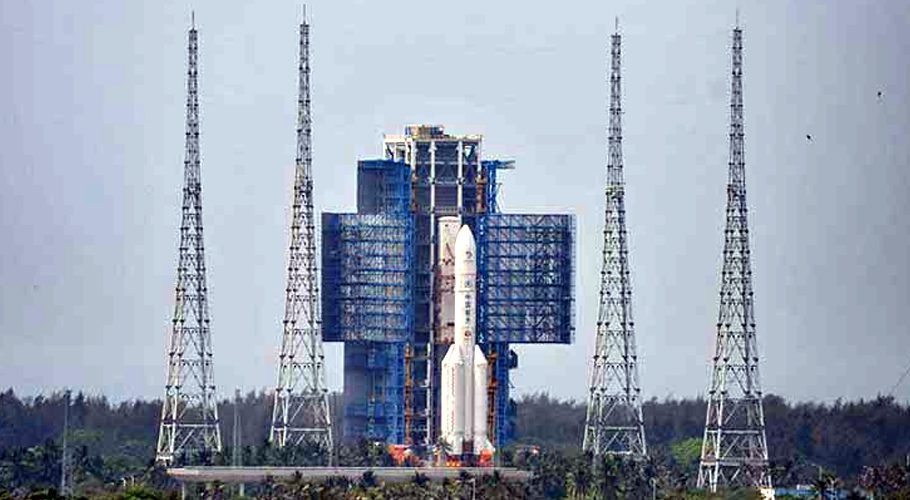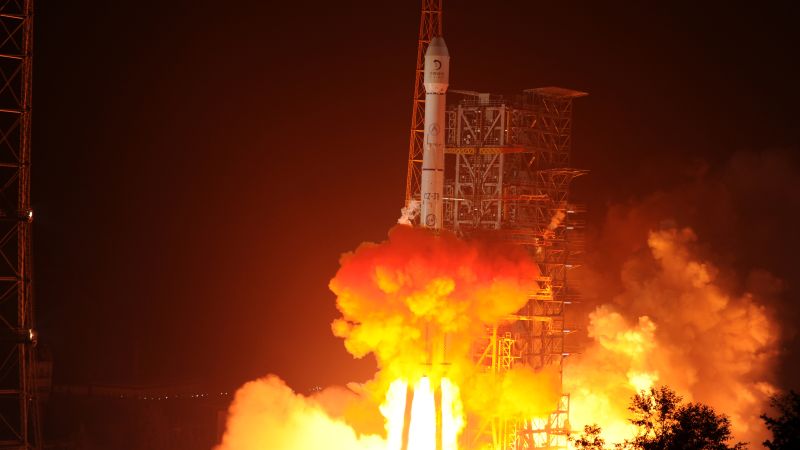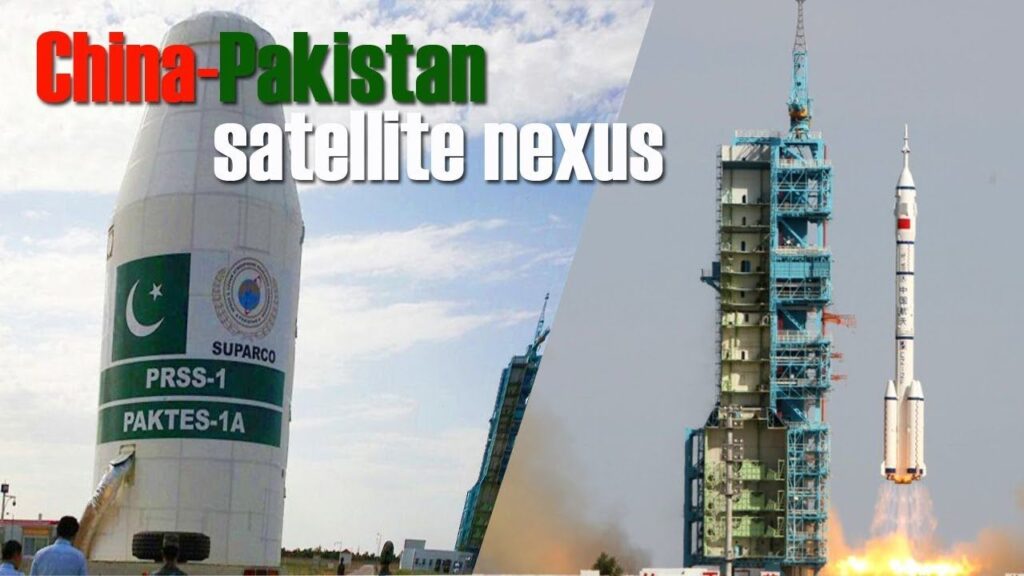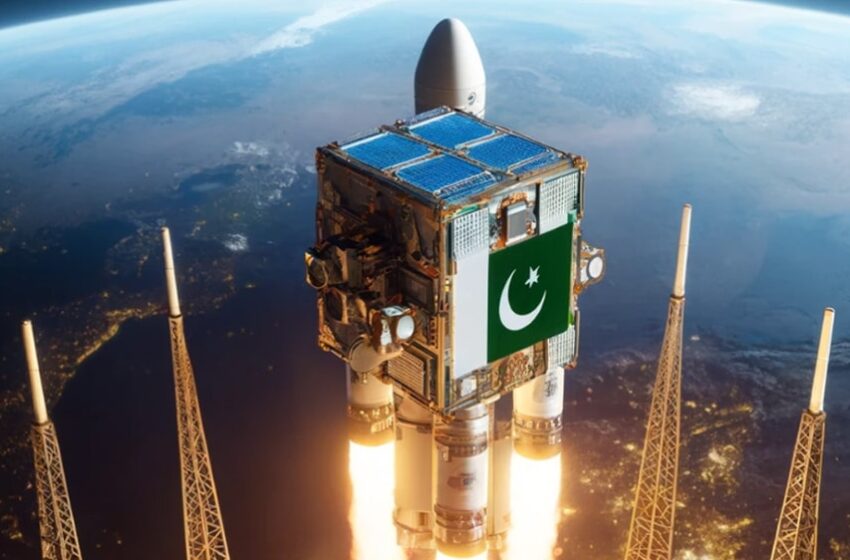1st Lunar Mission Of Pakistan In History
Pakistan etched its name in space history with the launch of its 1st Lunar Mission on May 3rd, 2024. The iCube-Qamar satellite, a collaboration with China, will orbit the moon collecting valuable data and images. Marking a major leap forward for Pakistan’s space exploration journey.
Pakistan Launches First-Ever Lunar Mission
“Pakistan etched its name in the annals of space exploration on May 3rd, 2024. Moreover, with the historic launch of its first-ever lunar mission, the iCube-Qamar (iCube). In collaboration with China’s Chang’e-6 mission, marks a pivotal moment for Pakistan’s space program.”
Riding aboard a Chinese Long March rocket, iCube embarks on a journey to orbit the moon. This mission not only fuels scientific discovery but also serves as a stepping stone for Pakistan’s future ambitions. In space exploration, inspiring a new generation to reach for the stars.
- Collaboration with China
- The Mighty Mini – The iCube
- A Stepping Stone for the Future
A New Era for Pakistani Space Exploration
Collaboration with China:
While history remembers it as Pakistan’s first lunar mission, the launch wasn’t a solitary feat. “Pakistan partnered with China’s Chang’e-6 mission, a larger lunar exploration program. Moreover, iCube piggybacked on China’s Long March 5 Y8 rocket, taking off from the Wenchang Space Launch Site in Hainan, China. As a result, this collaboration provided a crucial boost. Allowing Pakistan to leverage China’s expertise and resources for this historic first step.”
The Chinese mission aims to grab samples containing material ejected from the lunar mantle. And thus provide insight into the history of the Moon, Earth and Solar System.

The Mighty Mini – The iCube:
iCube is a miniaturized satellite, a CubeSat. Its small size and weight allow for a more cost-effective launch compared to traditional spacecraft. After it reaches the Moon, it will make a soft landing on the far side. Within 48 hours after landing, a robotic arm will be extended to scoop rocks and soil from the lunar surface, and a drill will bore into the ground. Scientific detection work will be carried out simultaneously,” Xinhua News reported.
After collecting samples, the unmanned spacecraft will return to Earth, landing in north China’s Inner Mongolia autonomous region. The entire flight is likely to take 53 days. Ahead of the launch, some 50 officials from 12 countries including Pakistan, France, Italy, UN and the European Space Agency, attended a conference in Hainan about the space and possible cooperation among different nations.
While orbiting the moon, iCube will carry out several scientific tasks:
- Lunar Reconnaissance: Equipped with two high-resolution cameras, iCube will capture valuable images of the lunar surface. These detailed snapshots will offer insights into the moon’s geological makeup, potential resources it might hold, and aid in selecting landing sites for future missions.
- Lunar Magnetic Field Studies: Our moon boasts a magnetic field significantly weaker than Earth’s. iCube will collect data on this lunar magnetic field, potentially providing crucial information about the moon’s formation and history.
- Pakistan’s 1st Lunar Mission, iCube-Qamar, launched in collaboration with China’s Chang’e-6 mission. iCube, a miniaturized CubeSat, will capture lunar images and study the moon’s magnetic field.
- This mission signifies a significant milestone for Pakistan’s space program, inspiring future endeavors.

A Stepping Stone for the Future:
The successful launch of iCube is a monumental achievement for Pakistan’s space program. It showcases the nation’s growing prowess in space technology and paves the way for a future filled with even more ambitious lunar missions. This success story is bound to inspire a new generation of scientists and engineers, fostering further investment in space research within Pakistan.
Besides CubeSat from Pakistan, the Chang’e-6 mission also carries a number of other international payloads to the moon, including the European Space Agency’s lunar surface ion analyzer, France’s radon detection instrument, Italy’s laser corner reflector.
Meanwhile, Pakistan’s Prime Minister Shahbaz Sharif also congratulated the nation and scientists for launching the first lunar orbit mission.

A Giant Leap for Pakistan
The successful launch of iCube stands as a monumental achievement for Pakistan’s space program. It serves as a testament to the country’s growing prowess in space technology and paves the way for a series of future lunar missions. This venture is expected to ignite a spark of inspiration in young minds and encourage greater investment in space research endeavors.
Looking Ahead
The iCube is projected to enter 1st Lunar Mission orbit around May 8th, 2024. As it gathers data, scientists will be analyzing the information to broaden our understanding of the moon. The success of iCube is likely to be a stepping stone for even more ambitious lunar missions from Pakistan in the years to come.

